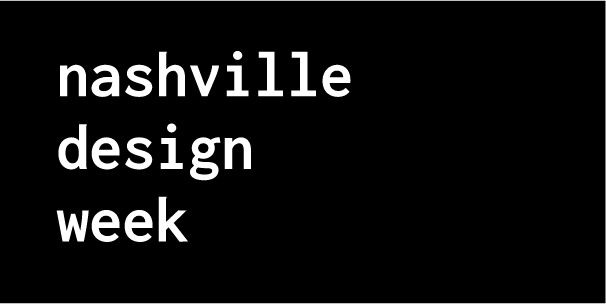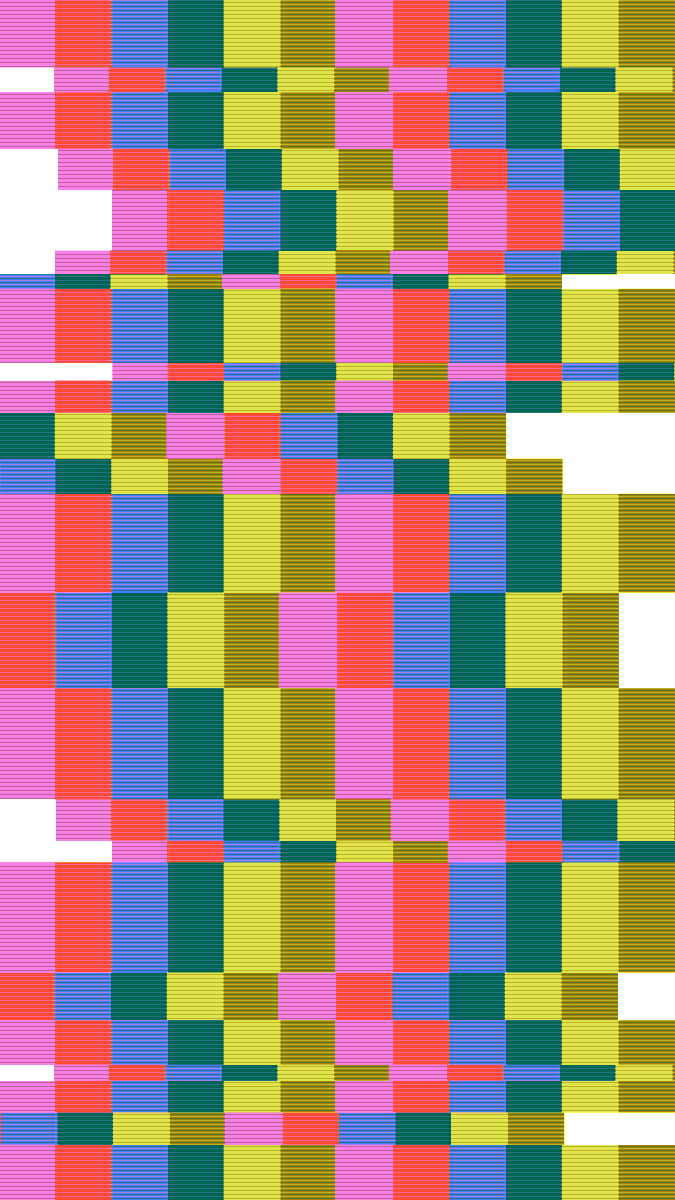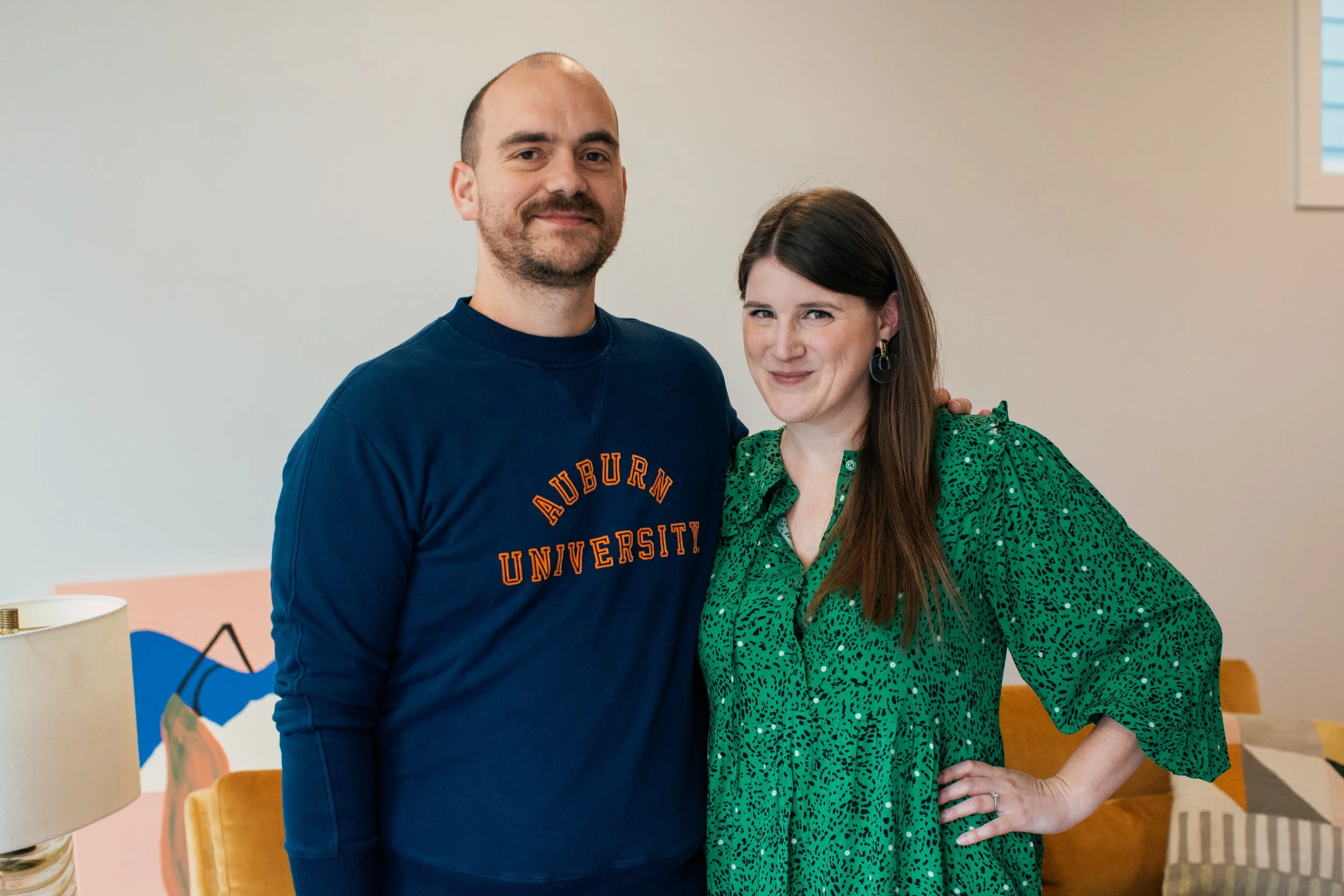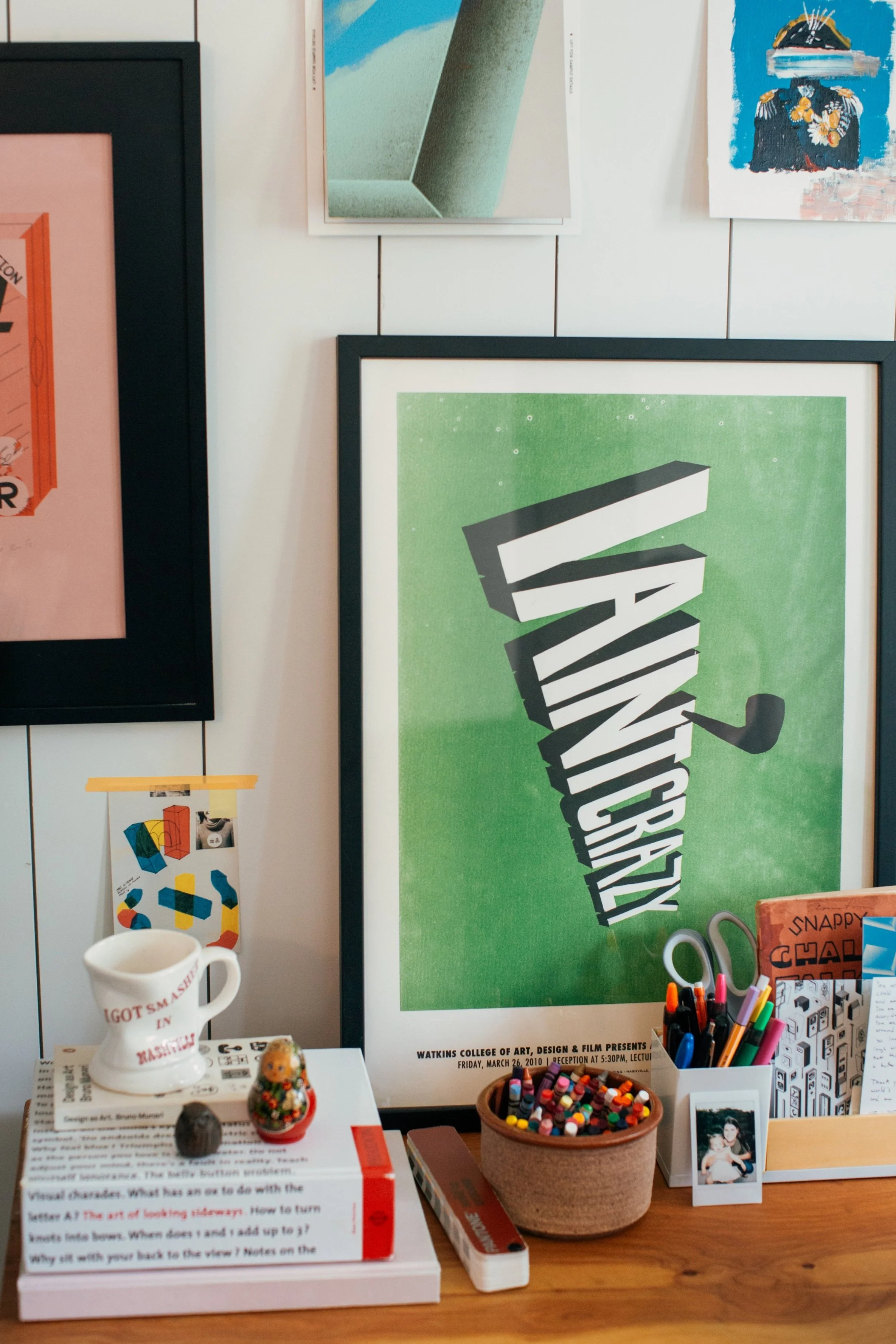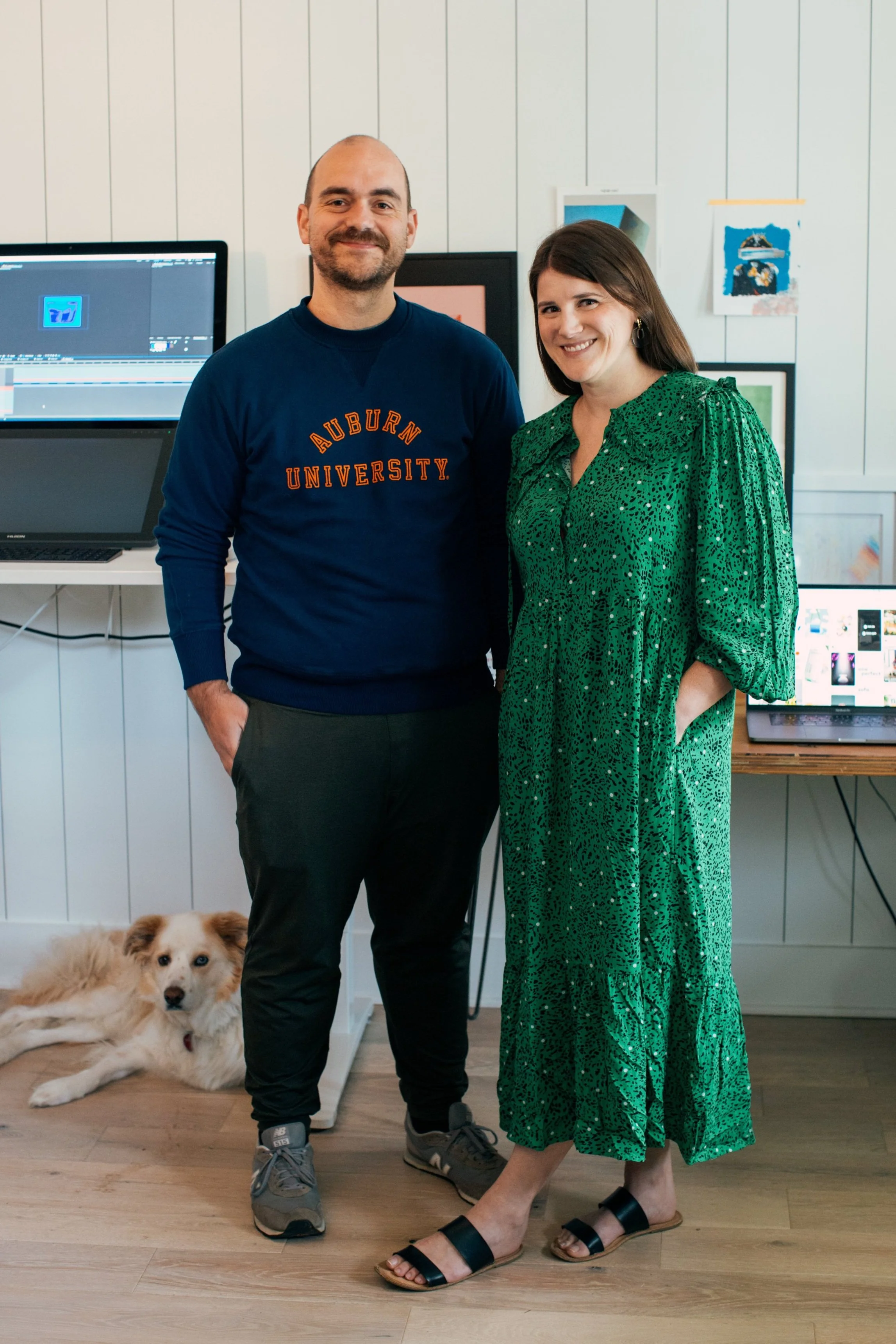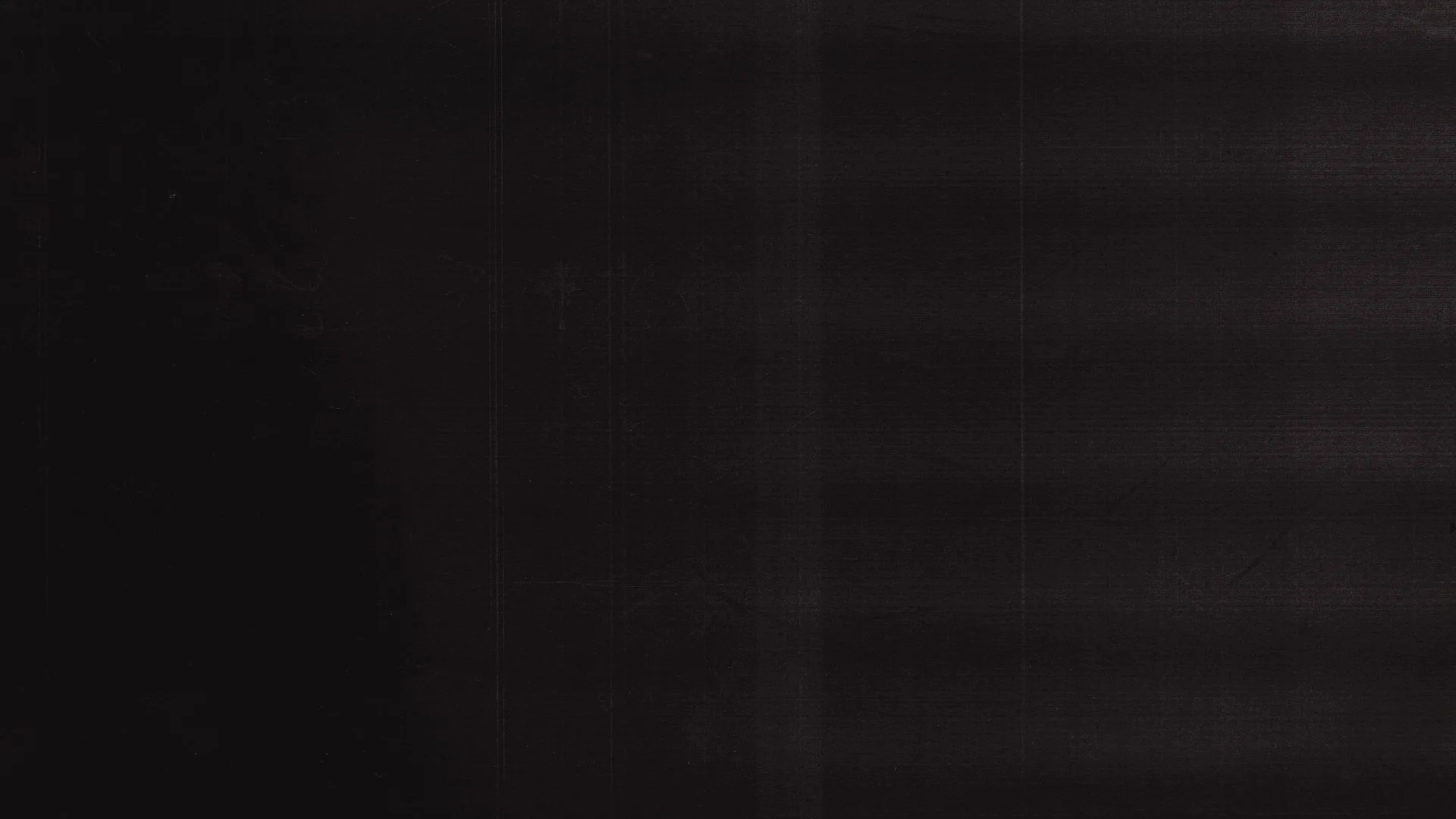
Studio Visit: Lasso Studio
Story By: Priya Ollapally
Featuring: Allen & Lindsey Lasseter
Nashville Design Week 2021
Husband-and-wife team Allen and Lindsey Laseter weren’t always planning to marry their talents professionally. Lindsey spent ten years in branding, graphic design, and strategy at traditional digital agencies and branding studios while Allen -- an animator, illustrator and director with a background in film -- worked independently for much of his career. But a perfect storm of introspection, external factors at work, and shifting perspectives through the pandemic showed them what it could mean to join forces creatively.
They have just launched Lasso, their official studio as Partners and Creative Directors, and they spoke with Nashville Design Week about what it means to reflect on the life you want and deliberately design your careers around that shared vision.
Who is Lasso Studio?
Lindsey–
Lasso is our creative studio. We specialize in motion-focused branding, creating brand identities with motion design as a core component, which allows us to combine our areas of expertise. So for me, that's graphic design, strategy & branding and for Allen that’s animation and illustration. We both had been working in our own careers for the last ten years, and it's really because of Nashville Design Week - the opportunity to brand it last year - that we saw the opportunity to pursue being an official studio. We had chatted about it casually before but we realized “Oh, this is something that we could actually do.”
Allen–
Working in animation there hasn’t been a lot of focus on branding. Typical projects might be an explainer video, web content, maybe a music video every now and then with animation, occasionally a narrative short for a publication.
We realized that there were many talented animation studios and brand & design studios, but very few who brought those two components together to both be equal and integral to a brand. Animation adds the chance to tell a deeper story. Elements of traditional design were typically restricted to a static form, and now we can expand so far beyond with how fast everything is evolving.
Lindsey–
With traditional design, digital design, animation, and illustration all under one roof we realized we could really do some incredible work that we couldn’t do alone. We can bring expertise from both worlds to every project. It’s an opportunity for a seamless marriage of two art forms: motion and design building upon one another. Plus, we could work together, and learn from one another... our skills and passions were opposites, and a great complement in how we’d run the business.
We also wanted to form our studio around the life that we really want to live. That's been exciting to think about: how we can do work we're passionate about, but live the family life we want to live as well as make time for the things that excite us beyond commercial work.
“We realized we could work together, learn from one another...our skills and passions were opposites and a great complement in how we’d run the business.”
What is motion-led branding? How is it different from traditional branding?
Lindsey–
Motion-led branding to us means using classic graphic design and motion and animation as key components to one another. So many brand studios create beautiful brands but they lack the layer and power of motion. So many animation studios create impeccable motion pieces and videos, but they often are created without a brand system at the heart. We’re merging what we love to create work that can take the idea of branding to the next level in our increasingly digital world.
It was exciting to realize our skills and industries could be combined and give us the opportunity to grow together, both personally and professionally.
“You realize your work is still important to you, but satisfaction and joy is so much bigger than work.”
What were your careers like before forming Lasso Studio?
Lindsey–
Allen originally went to school for filmmaking, and that’s where we met, at art school (Watkins College of Art, Design & Film). His career was focused on directing and cinematography when he first got out of school. He's self-taught in animation and illustration which has always blown me away.
Allen–
It was out of necessity because I was looking for work when I was still doing live-action stuff and a job fell into my lap that was more animation-focused. I had just enough experience working with After Effects to take it on, not realizing how much I still needed to know. So then I had this whirlwind experience, basically learning how to animate on the job.
Lindsey–
Allen's always been independent and freelance his whole career, but I worked in-house in agencies and studios, so I was used to a more traditional nine-to-five-with-a-boss type of thing. I was always very intimidated by the idea of going independent. Allen had encouraged me to do it years ago, but when one spouse is independent, it's nice to have the stability of a full-time job and insurance.
I actually lost my last full-time job. I was working as a Creative Director in house for a hospitality company and made that shift to a leadership role to grow but also to shift how we lived and worked as we had our daughter.
You know, early on in your career, you're so passionate about the work. It's all about the work; you’re spending late nights staying up to work, just because you're excited about it. I worked at the digital agency redpepper and then the branding studio Perky Brothers — I was on fire to be creating incredible work. But after all those years, our priorities started to shift and so did our goals for how we wanted to work and live. You reach burnout when you only prioritize work. You realize your work is still important to you, but satisfaction and joy is so much bigger than work.
Losing my job was kind of a magical thing because after I returned to that in-house job for maternity leave, I recognized it wasn’t the right thing for me long term, and the next week I was called into the office with HR to be told they were restructuring and no longer needed me. It naturally flowed into freelance for me, which I don’t think I would have pursued on my own. It was one of those things where a power that is greater than you knows better than you do.
Having the chance to be a freelancer showed me how working independently was perfect for how I wanted to work and connect with people. Then the opportunity to brand Nashville Design Week came and we really saw the potential of joining forces.
Establishing a new business together, what are the decisions you’re making as a couple and business partners?
We’re working with a business advisor called Ellevated Outcomes that's based here in Nashville. So much of our work with them is doing a lot of deep thinking about who we want to be, who our ideal client is and getting clear on the unseen work of how our business works and evolves as we grow. We both had ideas early on about what got us personally really excited, and now we’re breaking it down, thinking in terms of functioning as a business: what to charge and how much our time is worth, what's the value with the addition of branding and motion together since it’s not as common, but is more and more valuable.
Allen–
Right now we're pretty happy just being a two-person operation. We have the ability to scale up to do bigger projects as needed but we don’t want to rush in to bringing on full-time staff and then be forced to take on bigger and bigger projects just to keep the lights on. We always want the work to be satisfying in and of itself.
Lindsey–
A goal for us, too, is being able to have a studio model that supports us doing client work that we love and focusing on finding the right partners to work with. Not just being hired hands, but partners who seek us out for our approach, and our point of view to work on projects where we can make a real difference. Something that has been exciting in my career is that shift from being a young junior designer, where you just want to make things that are beautiful and cool visually, to using my skills to support a business or cause I believe in. There is so much power in using design to solve real problems.
Running our own studio as a couple is also really exciting to have the control to make business decisions based on our lives — we don’t take on a huge project if it means we can’t be together as a family and enjoy what truly matters to us. We can structure our work to support our life.
What’s your relationship with Nashville? Why were you drawn to Nashville? What sets the city apart?
Lindsey–
There were multiple times where we thought we'll move to a bigger city, that to play in a bigger field we would need to move to a big city. We thought we were going to move to the west coast to go to San Francisco or maybe Seattle or Portland or something. It's been really cool to see how Nashville has grown and we're so glad we stayed. Our ideas for what we want personally and professionally have changed too, and it’s beautiful to see that evolution.
We both moved here in 2007. Nashville was still considered a small city. At that point, Nashville was really just still known as the country music capital.
Allen–
It was right before the boom.
Lindsey–
It wasn't necessarily known for such a wide range of creative industries and creative talent aside from music. I was drawn to the city because it was so friendly. I'm from South Carolina, so it was bigger than where I grew up in Greenville. A few years after we moved here, it got the title of “It City” and suddenly there was an influx of growth, especially people moving from bigger cities which I think naturally just brings different perspectives, and ideas of how things could be approached. There's certainly pros and cons, you know. I’ve been missing some of the character that Nashville had when it was smaller and a little less metropolitan. But so many exciting things are coming, including bigger opportunities for us creatively so I’m excited for the evolution and growth.
How did your sense of community change when you made this shift to form the studio?
Allen–
I don't know that mine has really changed. I mean, obviously the biggest thing was learning to work together and learning the language that we speak and how to give and take criticism and that kind of thing. Lindsey probably has had more of a dynamic change going from full-time to independent.
Lindsey–
I'm definitely an extroverted person and I love to be surrounded by people. My fear of going freelance was that I’d be lonely or I wouldn’t have people around me to push me. Throughout my career, i have made a point to reach out to people that I admire and ask to connect. If didn't have to have a full-time job, I’d just want to meet people and essentially be a professional friend. It's always been a gift that I credit my dad for, being able to reach out to anyone or walk up to anyone and let them know, “Hey, I really admire you. I'd love to connect and hear more about you.” And from that you just naturally learn a lot.
And so I think something that was really incredible was that instead of my world feeling smaller working independently, my community actually grew significantly. You know, you're not in an environment where you are just talking to the same people every day - and I certainly worked with incredible people over my career, and I'm still very connected to a lot of them, which I'm grateful for - but it expanded so much. Talking to people across the US and hearing their stories, hearing from their experiences behind the scenes at agencies or studios I really admired, it really opened my view of what a studio could really be.
Allen has his community within the motion world, and I have mine in design, and now we’re merging it all together and learning from peers and people we admire.
Are there studios or artists you’re inspired by who have found balance between passion projects and profits, work and non-work life?
Lindsey–
Locally, some of our friends run IV Studio, which is a motion studio. Allen met them initially working freelance for them. I think they were one of the early motion-specific studios in Nashville. We've stayed friends with them over the years, but one thing that's really cool is that they've essentially taken the things they’re very passionate about and created products and businesses. So from their own coffee brand to designing their own board games, and now they have a series of shows on Youtube. We want to create our own products and side projects too, so it’s encouraging to see your peers doing it when it can feel so challenging.
Allen–
They make board games, they make mobile games. They’re awesome. There’s also a studio called Gunner in Detroit who does a really great job with this. They are an amazing motion studio. They do client work for huge clients, and they do great work in that realm, but they also have put out a crazy amount of purely studio-driven, personal work. I don't know how they do it, but it seems like they set an intention at the outset that they wanted that to be a part of the work that they do, so they’ve set up the foundation to be able to support that. That's kind of an encouraging example that that balance is possible.
Lindsey–
There are so many artists and creatives who inspire us here in Nashville and Nashville Design Week has been a great way to connect with even more. New Hat is another studio who not only have become dear friends, but who inspire us and show what a successful creative business can look like outside the mold.
What’s next? What are your dream projects as a studio?
Lindsey–
Experiencing Nashville Design Week this year and actually seeing all the work come to life in person created so much energy and momentum for us. Designing the brand for 2020 was great, but we missed out on the in-person components of design in the project because of Covid, so the chance to see that come to life, from projecting our animation work onto walls 20+ feet tall to supporting each event with signage to buttons for volunteers, gave a real look into the effect the work can have. That was pretty incredible.
As far as dream projects, we’d love to partner with companies and creative visionaries who really believe in what they’re building. It could be brands, products, services, events, museums… we’re thinking a lot about how motion-led branding would be most useful for communicating and creating experiences. And we’re looking for projects that can be fun and truly interest us. Let’s brand the Sundance Film Festival next. Let’s create really special projects in Nashville that make our city an even more amazing place to live. Let’s create our own products, make a children’s book, and create public art. We want to make commercial and personal work equally important.
There’s certainly a balance in commercial work where people believe you can’t have all three F’s: Fame, Fortune and Fun… I was told early in my career that you can pick two. Recently, we’ve been trying to break that belief. I think it is possible to have the work and life we want. We’re working on a clear vision, taking action to make it happen and trusting it will all come together.
